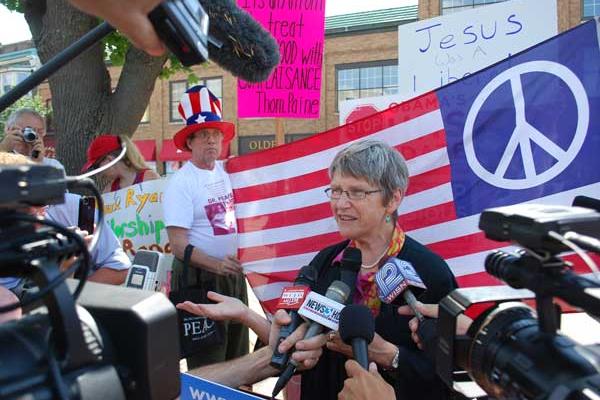Sister Simone Campbell, the face of the famous “Nuns on the Bus” tours, and Rep. Paul Ryan, the brains behind the House Republicans’ budget-cutting plans, have for more than a year represented diametrically opposed camps on how to apply Catholic social teaching to American fiscal policy.
At a House Budget Committee hearing on Wednesday, the two Catholics had a chance to square off as the sister testified before Ryan’s committee about hardship in America as the nation nears the 50th anniversary of President Johnson’s 1964 declaration of the “War on Poverty.”
Yet there were few fireworks nor much in the way of theological debate, as Ryan, R-Wis., did not go out of his way to champion the GOP budget plan that bears his name. That plan focuses on cutting social programs that Campbell says are key to supporting struggling Americans and also boosting the economy.
Read the Full Article

